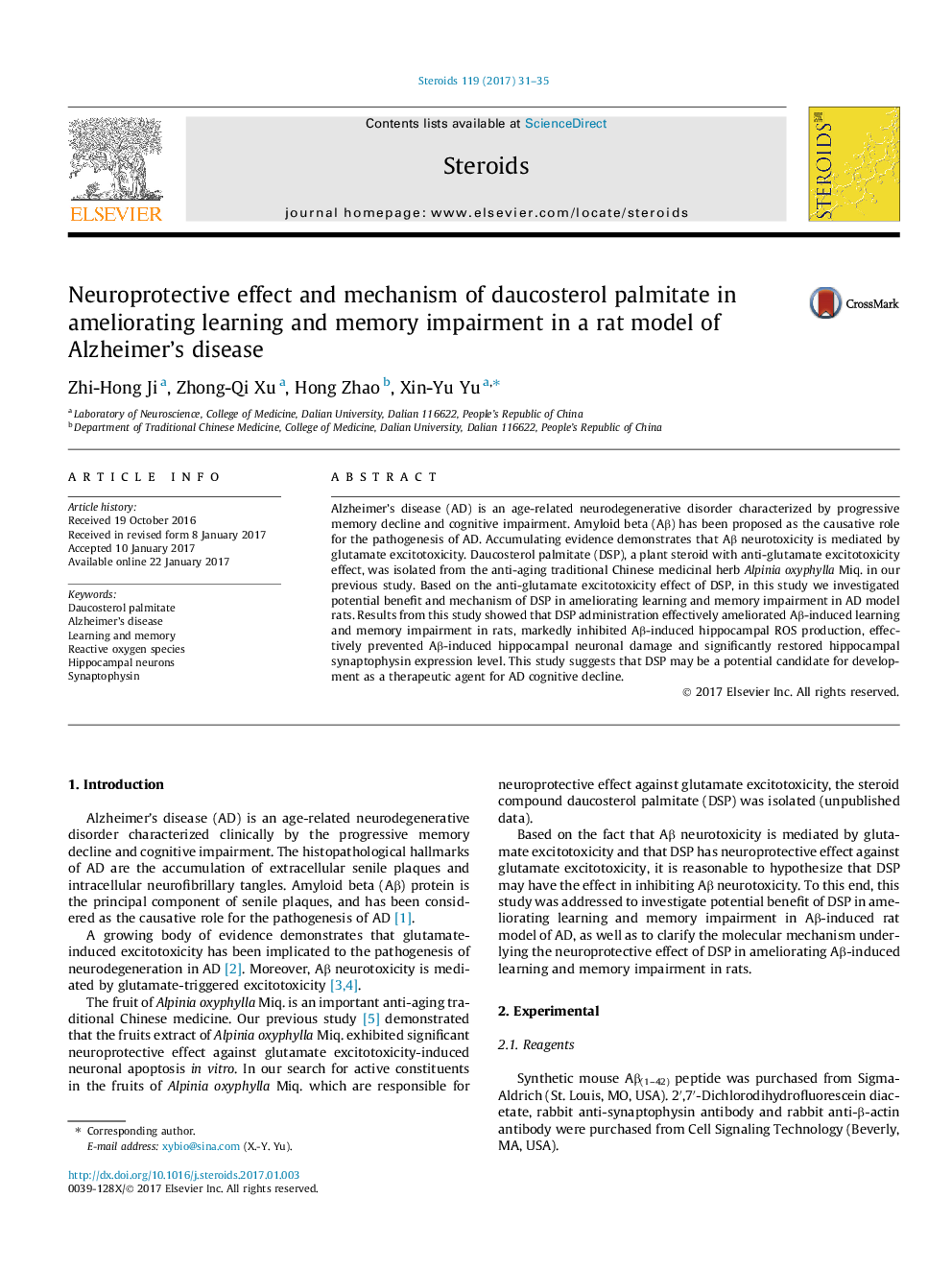| Article ID | Journal | Published Year | Pages | File Type |
|---|---|---|---|---|
| 5516723 | Steroids | 2017 | 5 Pages |
â¢Daucosterol palmitate ameliorates Aβ-induced learning and memory impairment in rats.â¢Daucosterol palmitate inhibits Aβ-induced ROS formation.â¢Daucosterol palmitate prevents Aβ-induced hippocampal neuronal damage.â¢Daucosterol palmitate restores the hippocampal synaptophysin expression level.
Alzheimer's disease (AD) is an age-related neurodegenerative disorder characterized by progressive memory decline and cognitive impairment. Amyloid beta (Aβ) has been proposed as the causative role for the pathogenesis of AD. Accumulating evidence demonstrates that Aβ neurotoxicity is mediated by glutamate excitotoxicity. Daucosterol palmitate (DSP), a plant steroid with anti-glutamate excitotoxicity effect, was isolated from the anti-aging traditional Chinese medicinal herb Alpinia oxyphylla Miq. in our previous study. Based on the anti-glutamate excitotoxicity effect of DSP, in this study we investigated potential benefit and mechanism of DSP in ameliorating learning and memory impairment in AD model rats. Results from this study showed that DSP administration effectively ameliorated Aβ-induced learning and memory impairment in rats, markedly inhibited Aβ-induced hippocampal ROS production, effectively prevented Aβ-induced hippocampal neuronal damage and significantly restored hippocampal synaptophysin expression level. This study suggests that DSP may be a potential candidate for development as a therapeutic agent for AD cognitive decline.
